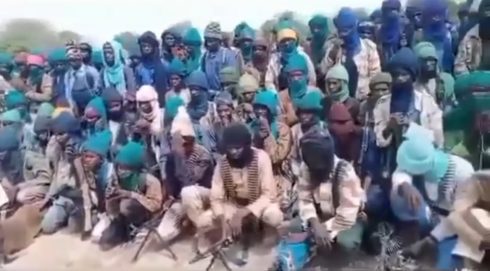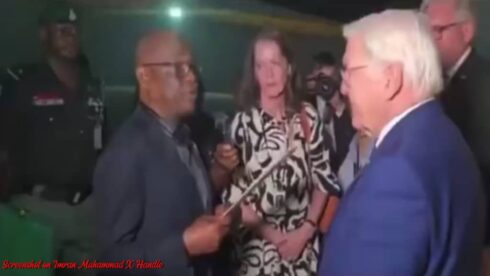The militant group known as Lukurawa’s began as a self-defense militia for Fulani communities in Niger in 1997. Initially formed to protect herders from Tuareg attacks, the group maintained a relatively benign presence in the region until 2012, when an alliance with the extremist al-Ansar al-Sharia faction in Mali’s Azawad region caused a significant ideological shift. This partnership sparked the formation of a splinter group within Lukurawa, which began adopting extremist ideologies, transforming them into a formidable force in northwestern Nigeria. By 2018, Lukurawa operatives, invited discreetly by local leaders, were active in areas like Gudu and Illela in Sokoto and Kebbi states, leading to rising tensions as they increasingly operated outside legal frameworks.
Reports indicate Lukurawa’s involvement in banditry, cattle rustling, and kidnappings, mirroring the tactics of larger insurgent groups. With ties to transnational extremist networks, Lukurawa’s complex ethnic makeup and multilingualism have facilitated its integration into local communities, posing significant challenges to Nigerian authorities.
Lukurawa: Alleged Foreign Funding and Destabilization Efforts
Shortly after Niger’s President Mohamed Bazoum was overthrown in a coup on July 26, 2023, allegations emerged that Lukurawa had received foreign funding to destabilize Nigeria and potentially restore Bazoum. Each of Lukurawa’s top members was reportedly incentivized with approximately 10 million naira (equivalent in U.S. dollars) and a motorcycle, while those with families received 15 million naira, along with access to sophisticated equipment.
Such incentives have bolstered Lukurawa’s presence across Nigerian border villages, where the group had already provided protection from bandit attacks, winning some measure of local support. However, with financial backing and equipment, their role has escalated, and they are suspected of pursuing mineral exploitation and resource control under the guise of protecting vulnerable communities. This shift has led to fears that Lukurawa’s activities might mirror those of Boko Haram, where protection turned into forced imposition of extremist ideologies.
Exploitation and Resource Control Agenda
Lukurawa’s mission in Nigeria reportedly goes beyond mere banditry and insurgency; it includes exploiting the region’s natural resources in Kebbi, Zamfara, and Sokoto states. Under the pretext of protecting local communities, the group is believed to be targeting mineral resources while promoting extremist ideologies to establish greater control. Lukurawa’s integration into rural communities, along with their financial inducements, has made them a forceful presence, with some villagers reportedly aligning with the group in exchange for perceived security.
This resource control agenda has implications for Nigeria’s sovereignty, as the group’s presence undermines public confidence and destabilizes the northwest region. The expansion of Lukurawa and the foreign-backed agenda they allegedly pursue complicate efforts to maintain stability, posing a threat to both governance and security.
Financial Networks and Regional Smuggling Operations
Beyond insurgency and resource exploitation, Lukurawa is reported to operate a substantial smuggling network, trafficking arms, fuel, and other goods across borders to support terror groups within Nigeria and across the Sahel. The group’s logistical and financial connections extend into neighboring countries, with smuggled goods reportedly moving from Kebbi State’s Dole-Kaina into Niger, and through Benin Republic to Burkina Faso’s Kompienga Province—a known center of terrorist activity.
Such extensive networks provide the group with steady funding and access to sophisticated weaponry. Lukurawa’s ability to leverage these cross-border connections highlights a well-organized and financially sustained insurgency, making it one of the most destabilizing forces in the region. By reinforcing supply routes and strengthening ties with other militant factions, Lukurawa’s reach has grown, further complicating Nigeria’s security landscape.
Strategic Solutions and Regional Cooperation
Containing Lukurawa’s influence requires a multifaceted strategy that combines intelligence, military force, community engagement, and regional diplomacy. Strengthening intelligence operations on Lukurawa’s recruitment strategies, funding, and movement patterns is essential. Enhanced surveillance, supported by drones and human intelligence, could help identify and neutralize Lukurawa’s activities before they escalate.
Cutting off Lukurawa’s financial and logistical networks will require collaboration with neighboring countries, particularly Niger, where the group has established connections. Cross-border cooperation on arms trafficking and trade activities will be vital to dismantling these networks. Targeted military actions involving local Civilian Joint Task Forces (CJTF) and knowledge of the terrain are also necessary to dismantle Lukurawa’s bases effectively. Additionally, diplomatic efforts with countries like Niger, Chad, and Mali could foster a unified security strategy, enabling joint operations and intelligence-sharing to contain the insurgency.
By combining these elements, Nigerian authorities can implement a sustained approach to weaken Lukurawa and restore stability in the affected regions, ultimately addressing the broader threat posed by transnational terrorism and resource exploitation.
Table of Contents
Discover more from OGM News NG
Subscribe to get the latest posts sent to your email.














